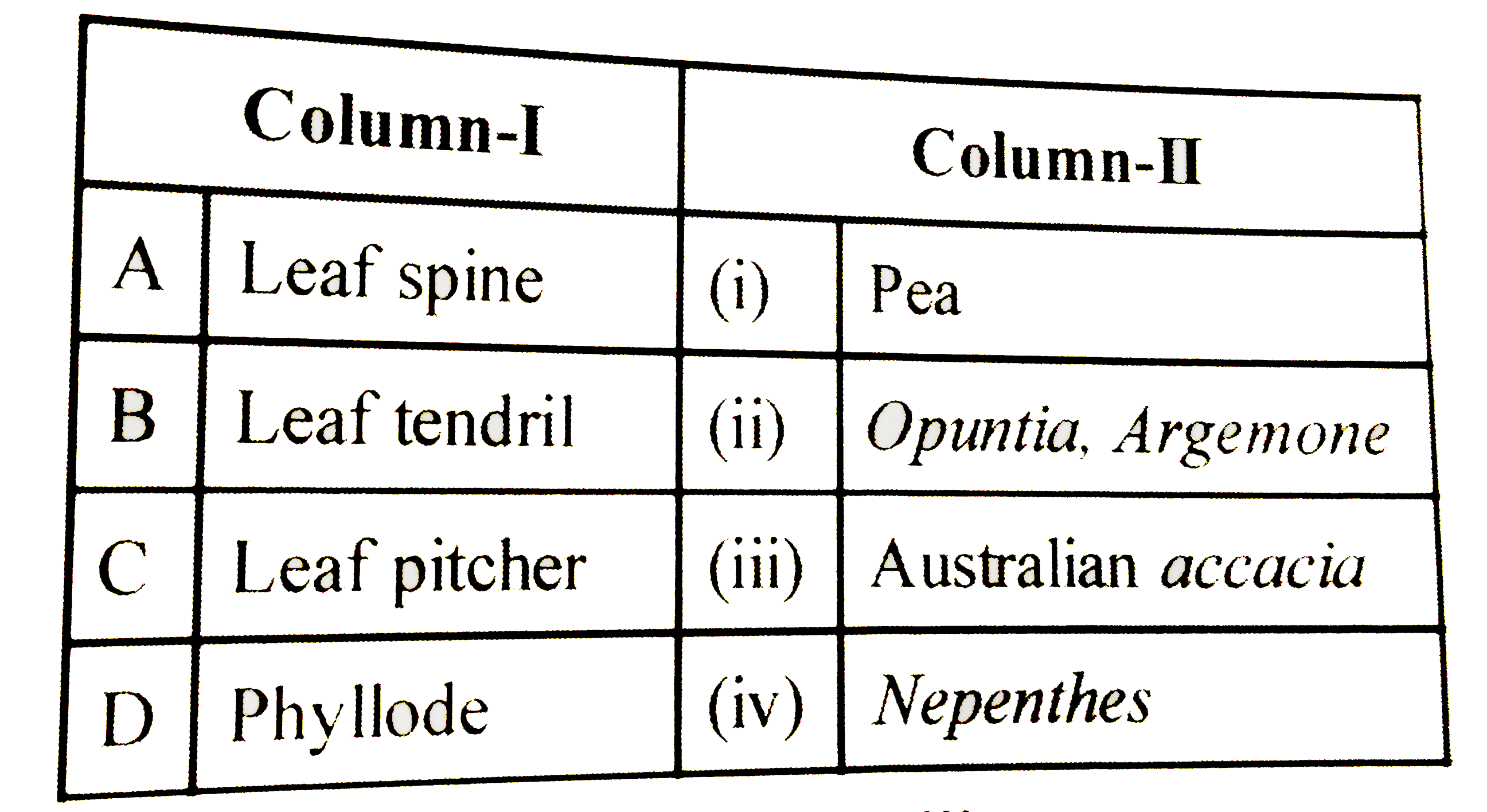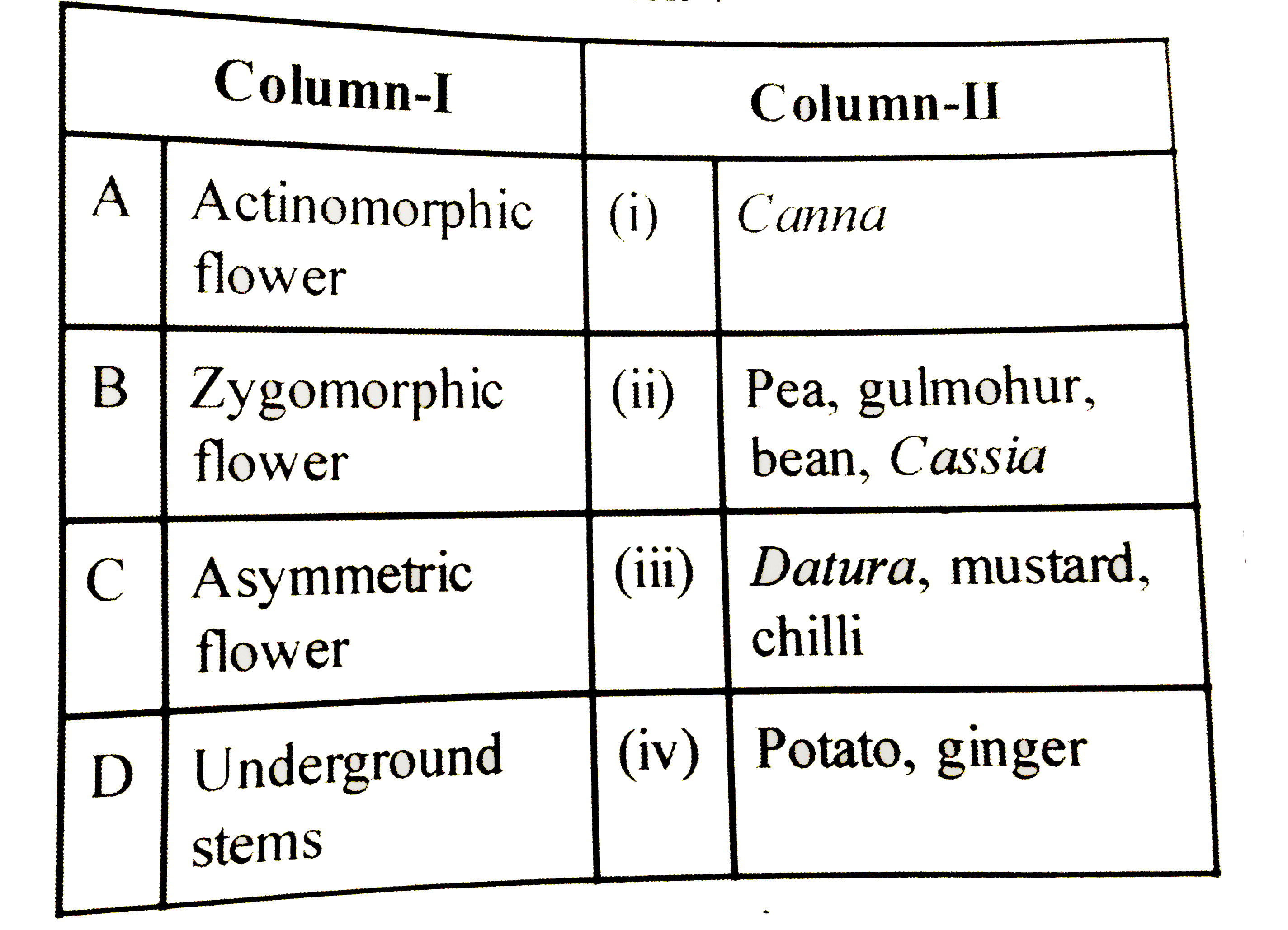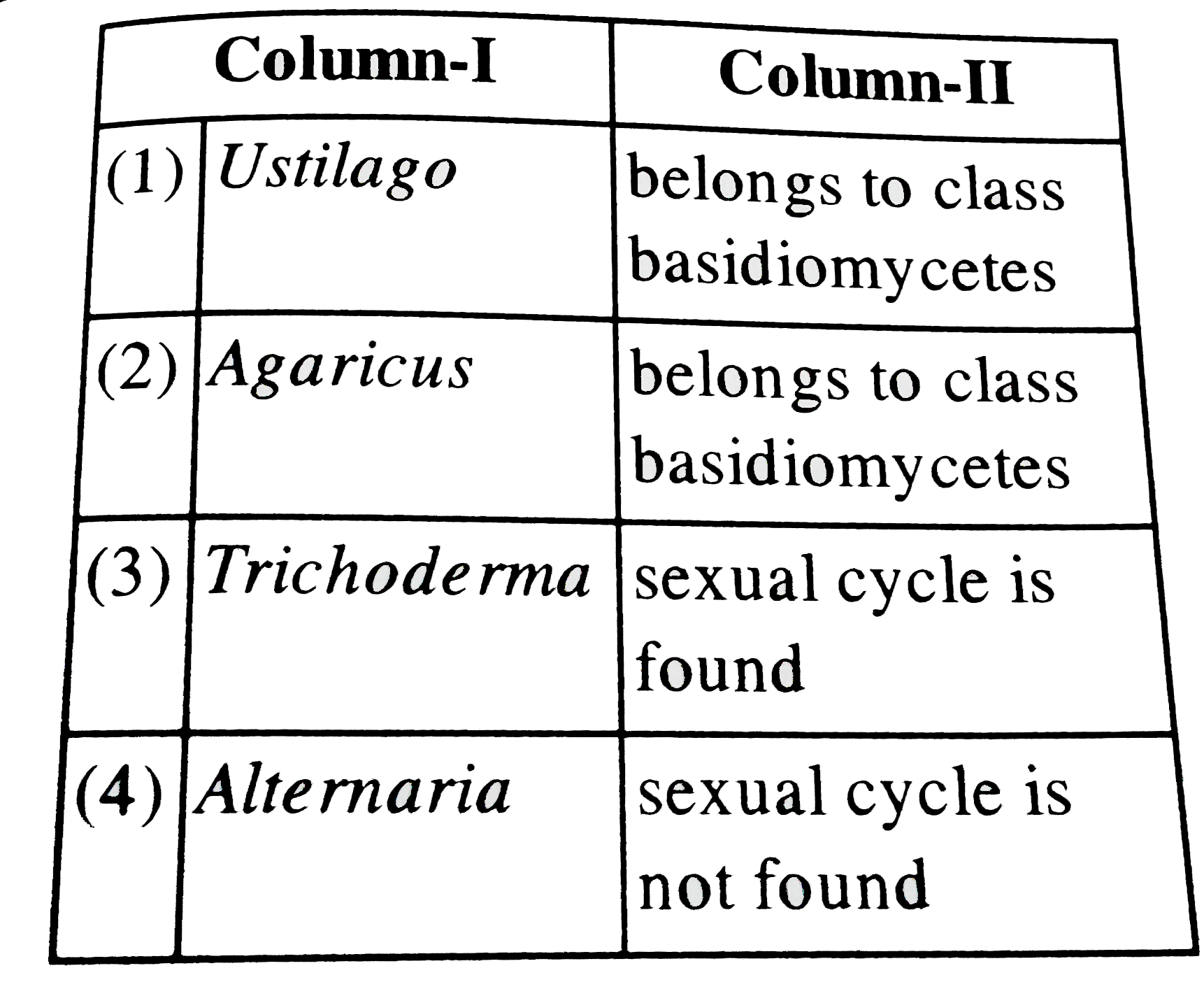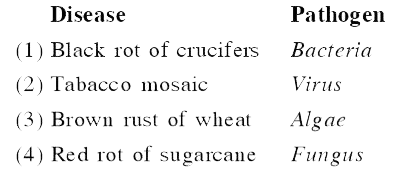Find out the incorrect match about allergy and inflammatory reactions.
Antigens : pollens, dust , animal fur.
Antibody: the least concentration lgE type
Cell : T lymphocytes
Chemicals : Histamine , serotonin
The correct Answer is:C
To solve the question of identifying the incorrect match about allergy and inflammatory reactions, we can follow these steps:
Step 1: Understand the Concept of Allergy
Allergy is an exaggerated immune response to certain environmental elements known as allergens. Common allergens include pollen, dust, animal dander, certain foods, and environmental factors like cold or heat.
Hint: Allergens trigger an immune response, and understanding what they are is crucial to answering the question.
Step 2: Identify the Role of Antibodies
The primary antibody involved in allergic reactions is IgE. This antibody is produced by B lymphocytes and is responsible for mediating the allergic response.
Hint: Focus on the type of antibody involved in allergies, which is key to understanding the immune response.
Step 3: Recognize the Cells Involved
Mast cells play a significant role in allergic reactions by releasing chemicals like histamine and serotonin. T cells, on the other hand, are primarily involved in cell-mediated immunity and do not play a direct role in typical allergic reactions.
Hint: Differentiate between the roles of mast cells and T cells in allergic reactions.
Step 4: Analyze the Options
Given the information:
1. Allergens (like pollen, dust) are correctly matched.
2. IgE antibody involvement is correctly matched.
3. T cells are incorrectly matched as they are not primarily involved in allergic reactions; mast cells are.
Hint: Look for the option that incorrectly associates a component with the allergic response.
Step 5: Conclude the Incorrect Match
Based on the analysis, the incorrect match is the one that states T cells are involved in allergic reactions, as they are not the primary cells responsible for this type of immune response.
Final Answer: The incorrect match is the involvement of T cells in allergic reactions.
Summary of Steps:
1. Understand what allergens are.
2. Identify the role of IgE antibodies.
3. Recognize the role of mast cells versus T cells.
4. Analyze the options for correct and incorrect matches.
5. Conclude with the incorrect match.
Allergy is an exaggerated immune response to certain environmental elements known as allergens. Common allergens include pollen, dust, animal dander, certain foods, and environmental factors like cold or heat.
The primary antibody involved in allergic reactions is IgE. This antibody is produced by B lymphocytes and is responsible for mediating the allergic response.
Mast cells play a significant role in allergic reactions by releasing chemicals like histamine and serotonin. T cells, on the other hand, are primarily involved in cell-mediated immunity and do not play a direct role in typical allergic reactions.
Given the information:
1. Allergens (like pollen, dust) are correctly matched.
2. IgE antibody involvement is correctly matched.
3. T cells are incorrectly matched as they are not primarily involved in allergic reactions; mast cells are.
Based on the analysis, the incorrect match is the one that states T cells are involved in allergic reactions, as they are not the primary cells responsible for this type of immune response.
1. Understand what allergens are.
2. Identify the role of IgE antibodies.
3. Recognize the role of mast cells versus T cells.
4. Analyze the options for correct and incorrect matches.
5. Conclude with the incorrect match.
Similar Questions
Find out the correct match :-

View SolutionFind out the correct match :-

View SolutionFind all the incorrect match .
View SolutionFind the incorrect matching.
View SolutionFind out incorrect match :-
View SolutionFind out incorrect match :-
View SolutionFind out the correct match about blood :
View SolutionFind the incorrect match:-

View SolutionFind the incorrect match :

View SolutionFind out incorrect match.
View Solution
